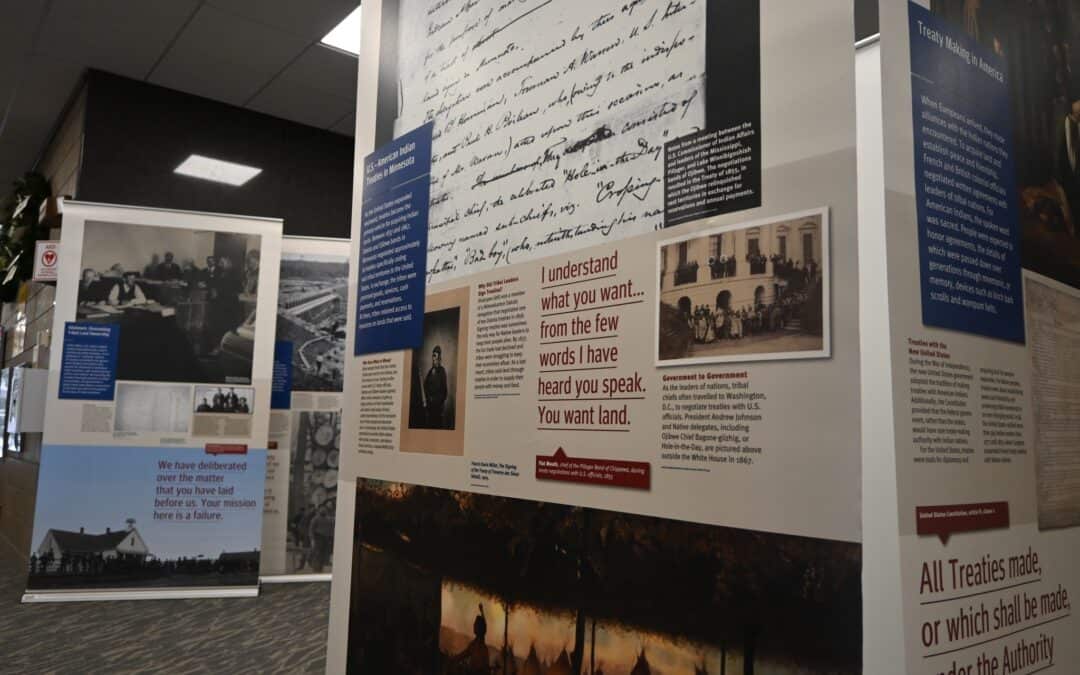Why Treaties Matter: Self-Government in the Dakota and Ojibwe Nations now open!
Many people believe the United States gave land to Native Americans, but the reverse is true. Under pressure, the tribal nations often gave up large portions of their homelands to retain reservations, small land areas for the exclusive use of their people and descendants. The United States promised to provide them with social, economic, and educational services in return. It’s a responsibility that continues today.
The traveling exhibition offers an opportunity to learn more about the Native nations in Minnesota and the history of treaty-making with the United States. It relays Minnesota’s Native history in the voices of Dakota and Ojibwe people in this place once called “Mnisota.” It includes 20 freestanding panels and a 14-minute video, “A Day in the Life of Minnesota Tribal Nations.”
Treaties matter to all because they are an essential part of our shared history in Minnesota. They are living documents that continue to affirm the inherent sovereignty of Native nations, enabling tribal governments to maintain a nation-to-nation relationship with the U.S.; manage lands, resources, and economies; protect people; and build a more secure future for generations to come.
Why Treaties Matter: Self-Government in the Dakota and Ojibwe Nations is a collaboration of the Minnesota Indian Affairs Council, Minnesota Humanities Center, and the Smithsonian Institution’s National Museum of the American Indian. The project is funded with money from the Arts and Cultural Heritage Fund and The Patrick and Aimee Butler Family Foundation.
